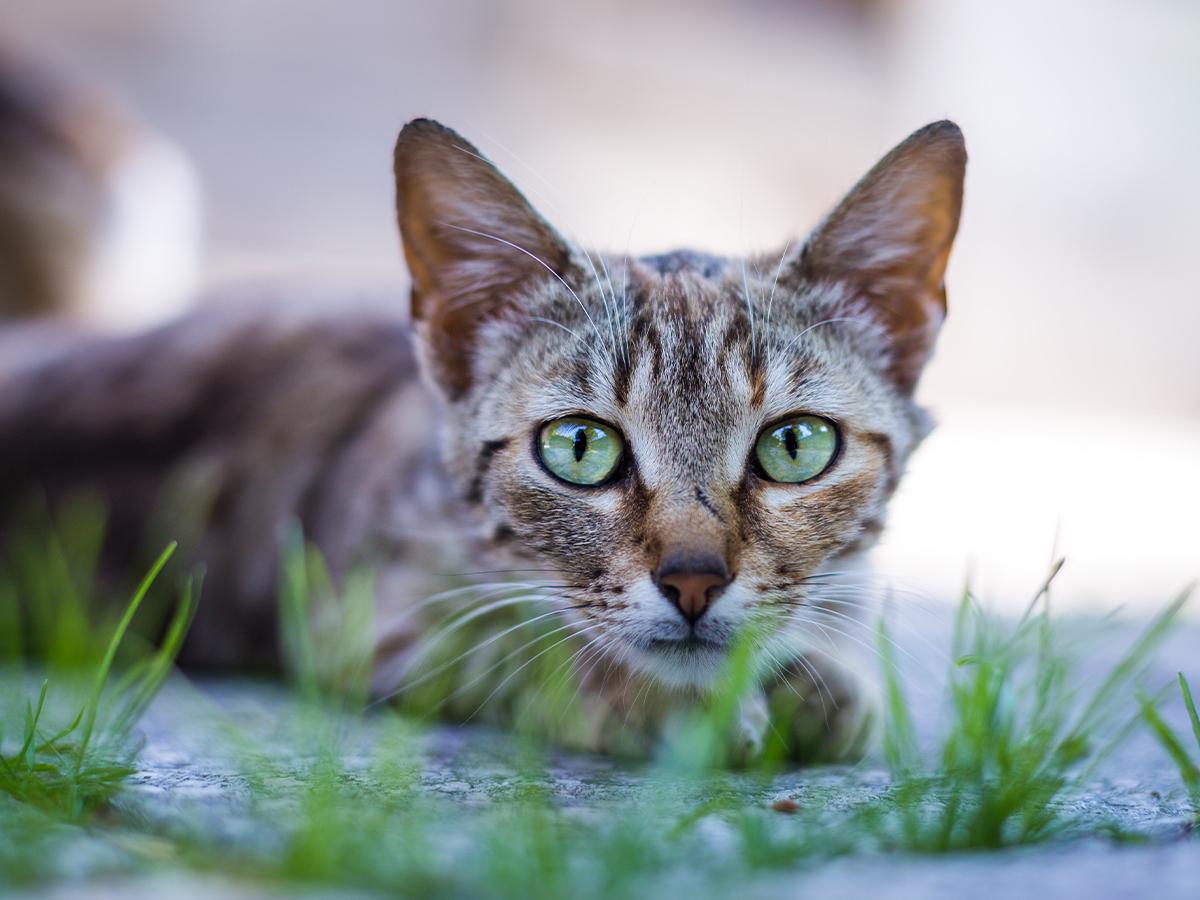Cat-Killing Policy in Oakland Updated, But Concerns Remain
We recently alerted you about the plight of community cats who were being shot and killed by the East Bay Regional Park District in Oakland, California, and thousands of you spoke out on their behalf. While there was a vote last week to amend the policy surrounding these killings, we remain concerned that the door is still potentially open for more to die.
Last December, an ABC7 I-Team investigation revealed that at least 18 cats had been killed by an East Bay Regional Park District (EBRPD) staff member, who, it was later revealed, had callously referred to their bodies as “party favors” before tossing them into garbage bags. The news was followed by public outcry, and collectively more than 26,000 people signed In Defense of Animals’ alerts calling for the killing to end and for the implementation of humane, non-lethal alternatives to protect both cats and wild animals in the area; first, after news broke, and again after the shooter was identified.
That month, the EBRPD temporarily suspended the lethal removal program while reviewing its wildlife management policies but didn’t commit to ending it.
Last week, the EBRPD’s board finally voted on an updated policy. There are a number of positive measures being put in place, including educating the public to deter cat abandonment, reestablishing partnerships with local animal services agencies to improve trapping and rehoming efforts, and more transparency through an annual report that will summarize activities.
However, killing cats still remains an option in this policy as a “last resort,” without clearly defining if or when that may actually be necessary. The EBRPD also has an existing contract with the U.S. Department of Agriculture’s diabolical Wildlife Services that it’s already using to kill wild animals every year, which will also be tasked with killing cats, should it become “necessary.”
We’ll be watching closely to see what happens and will continue to advocate for the humane care and treatment of cat colonies, for trap-neuter-return programs, and for non-lethal solutions to protect endangered species.
For more on how you can help, visit our Community Cats campaign.


